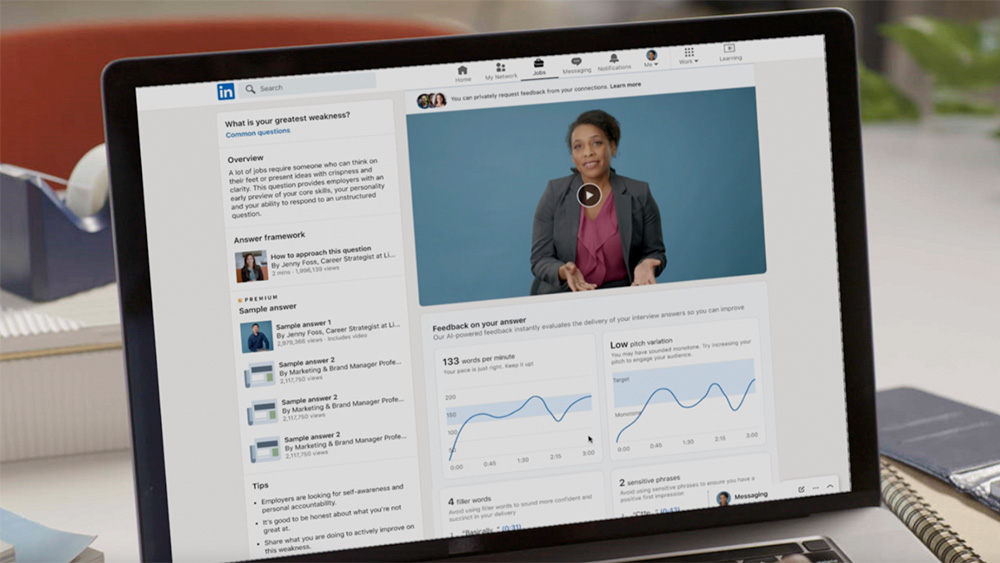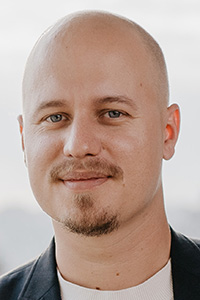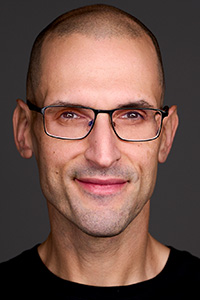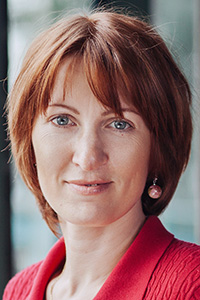
LinkedIn’s job-related focus might be one of the factors that has helped it grow to 950 million users in 200 countries. (Courtesy LinkedIn)
LinkedIn, you may have noticed, is booming.
Long considered the duller, nerdier counterpart to platforms like Facebook and Twitter, the 20-year-old business-oriented social-media channel was ranked as one of the top 10 fastest-growing brands in the world in 2022. The platform, which has reported that it adds a new user every three seconds, now has 950 million users in 200 countries.
LinkedIn’s growth spurt is evident in the business events industry as well: When we asked meeting organizers what new social media channels they were using to promote events in Convene’s 2023 Meetings Market Survey, the leading response — chosen by three out of five respondents — was LinkedIn. In our 2020 survey, meeting organizers named Facebook, with 3 billion users, as the leading channel for promoting events.
Many reasons have been offered to explain the platform’s growth, including its job-related focus amid employment upheavals during the pandemic — in 2022, there was an 88-percent increase in the number of users who were hired through the platform. LinkedIn also has added a slew of new features in recent years, including the ability to livestream events and post longer-form content. In March 2021, the platform made its “Follow” button — once available only by invitation to select “Influencers” — open to all. That gave content creators access to potentially much larger audiences — users shared 40 percent more content on the network in Spring 2023 than they did in the same period in 2021, according to LinkedIn.
Sources, including Bloomberg Business Week, also have suggested that an important reason why LinkedIn has become more popular is because it offers a drama-free alternative to the turbulence roiling other social media platforms. Corbin Ball, a leading event-technology consultant, deleted his 16-year-old Twitter account at the end of October, writing that Twitter, now X, has “gone off the rails” under owner Elon Musk’s leadership.

Juraj Holub
It may be a mix of all of the above, combined with the fact that LinkedIn, which has been owned by Microsoft since 2016, has found ways to be different things to professionals at different stages in their careers.
A case in point: During the years that Juraj Holub, a digital marketing and branding expert, worked as chief meeting designer for interactive meeting software tool Slido, he used LinkedIn to connect with the contacts he made at the conferences he attended all over the world. A few years ago, Holub began noticing a growing number of experts sharing insights and knowledge on the platform. “It has become resource Number One when it comes to keeping up with what’s happening in the industry,” Holub said. On LinkedIn, “two things came together beautifully — on one hand, creating connections and staying in touch with the connections that I met either personally or virtually. On the other hand, there is a treasure trove of incredible insights that I come across on a daily basis on the platform.”
After Slido was acquired in 2021, Holub cofounded Remote People, a consulting and training company for remote teams, based in the U.K. Without LinkedIn, where Holub frequently posts content about topics including facilitation, meeting design, and online meetings, “it would be close to impossible to pivot to a new business. It brings the whole professional world together,” he said. “We are passionate about events and meetings. I naturally want to share my thoughts, my passion, the way I think about [events] with the rest of the world. And if that resonates with somebody out there, they can reach out to us.”

Julius Solaris
‘LinkedIn Changed My Life’
Julius Solaris, founder of consulting firm Boldpush, started a group for event professionals on LinkedIn in 2008, when the platform was only five years old. A turning point for Solaris came after he made a “conscious decision” to invest in content creation, and picked LinkedIn as the platform, he told Convene. The events community is “huge” on LinkedIn, Solaris said, and the platform’s recent investments in content have made it “the de-facto, go-to network to close business.”
Solaris is now one of the most visible contributors on the platform in the events industry. His frequent posts, which are often tied to emerging trends, are routinely reposted dozens of times and generate comments that often number in the triple digits. “LinkedIn changed my life,” Solaris wrote on the platform in October. “This platform supported and impacted my business dramatically. Multiple times.”

Victoria Matey
Victoria Matey, a Seattle-based event planner turned consultant and speaker who specializes in applying behavioral science and psychology to events, also posts frequently on LinkedIn. Many of her clients and event professionals “who find my expertise valuable have discovered me through my content or casual conversations on LinkedIn,” Matey told Convene. In addition to posting articles, Matey uses LinkedIn to listen to what others have to say, she said. “It’s key in better understanding what people think about some challenges or trends, as well as for connecting with like-minded individuals.”
LinkedIn has taken flak, including on Twitter/X account @StateofLinkedIn, for the tendency of contributors to enthusiastically promote themselves on the platform and for the frequently earnest tone of their content. But the lack of snark and the use of real names is a plus for many users, including Gen Z, which is one of the fastest-growing demographics on the platform.
“Everybody understands that this is a professional network,” Holub said. “You want to build up your reputation in front of your colleagues, and you will not be sharing toxic comments.” Adds Solaris: “Self-promoters are going to be always there. It’s part of the game. It’s a business networking platform. This is what happens at in-person events, too.”
And, bottom line, users can opt in or opt out.
“I don’t think professionals should do LinkedIn or any social media just for the sake of it,” Matey said. “Be there only if you feel like it’s a valuable tool for yourself and/or your event’s audience is there.”
Barbara Palmer is deputy editor of Convene.
On the Web
- 10 Tips for Event Professionals Using LinkedIn
- Influencer Marketing Hub’s “36 of the Most Important LinkedIn Statistics for 2023.”
